#etta moten
Explore tagged Tumblr posts
Text
youtube
Remember my Forgotten Man, from Goldiggers of 1933 (1933)
#golddiggers of 1933#busby berkeley#etta moten#joan blondell#mervyn leroy#harry warren#al dubin#this is the number that really did us in in this film#the movie opens directly addressing the depression and its hardships#then sweeps the audience away for an escapist fantasy for most its runtime—its delightful#and then it ends with this incredible number#which really brings you back down to earth and its heartbreaks#its extraordinary#this clip cuts off at the end but it is rhe most complete i found#Youtube
0 notes
Text
Quotes
Being Black in this country before 1954 was a very, very, very bad thing, a hard thing. You were proud because of having overcome that, you see, and knowing people who could overcome it, and did overcome it. Etta Moten Barnett, actress and singer
2 notes
·
View notes
Text

Etta Moten Barnett (November 5, 1901 – January 2, 2004) was an actress and contralto vocalist, who was identified with her signature role of “Bess” in Porgy and Bess. She created new roles for African American women on stage and screen. After her performing career, she was active in Chicago as a major philanthropist and civic activist, raising funds for and supporting cultural, social, and church institutions.
She attended Western University, where she studied music. She completed her education at the University of Kansas, where she earned a BA in voice and drama. She became a member of Alpha Kappa Alpha Sorority, which provided a network throughout her career.
She became one of the rare African American stars to perform at the White House. She performed in two musical films released in 1933: Flying Down to Rio (singing “The Carioca”) and a more substantial role as a war widow in the Busby Berkeley musical Gold Diggers of 1933 (singing the emotive “My Forgotten Man”). She was dubbed the singing of Theresa Harris in Professional Sweetheart.
Gershwin discussed her singing the part of “Bess” in his new work Porgy and Bess, which he had written with her in mind. She was concerned about trying a role above her natural range of contralto. In the 1942 revival, she did accept the role of “Bess”, but she would not sing the word “nigger”, which Ira Gershwin wrote out of the libretto. Through her performances on Broadway and with the national touring company until 1945, she captured Bess as her signature role. #africanhistory365 #africanexcellence #alphakappaalpha
1 note
·
View note
Video
youtube
The moving finale to Goldiggers of 1933: Remember my Forgotten Man, featuring Joan Blondell and Etta Moten
Remember your forgotten men. You’ve got to let us live again. We came, we marched away, To fight for USA, But where are we today?
1 note
·
View note
Photo

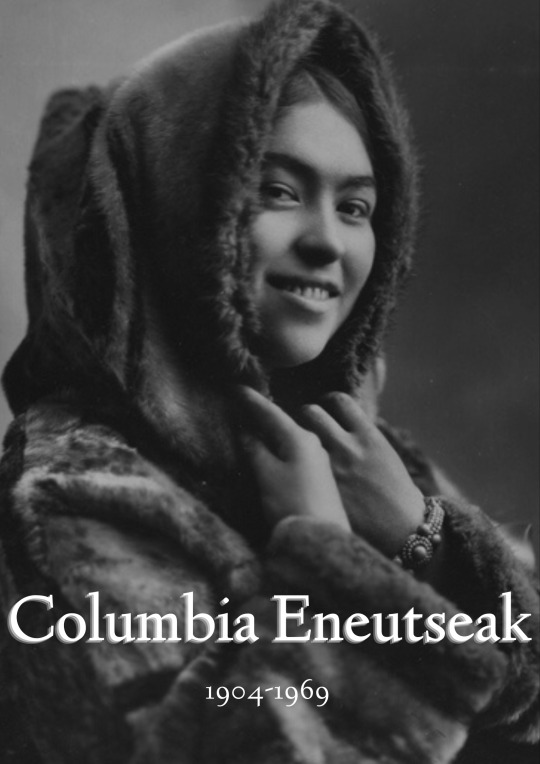




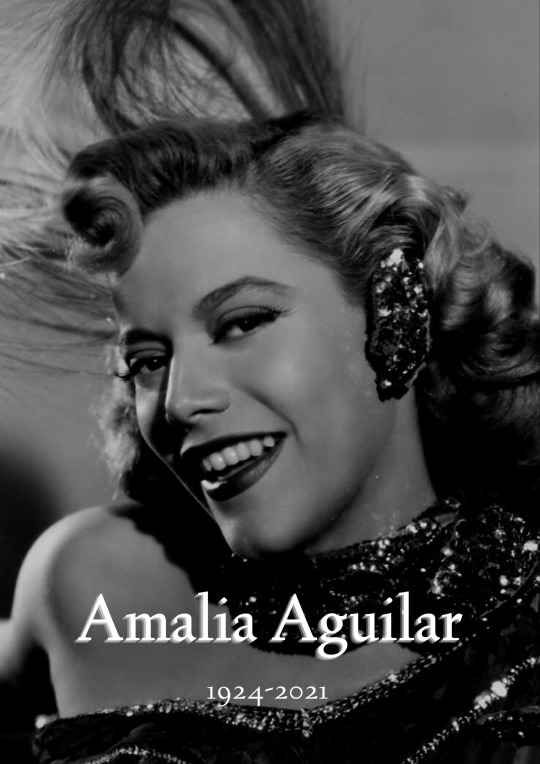

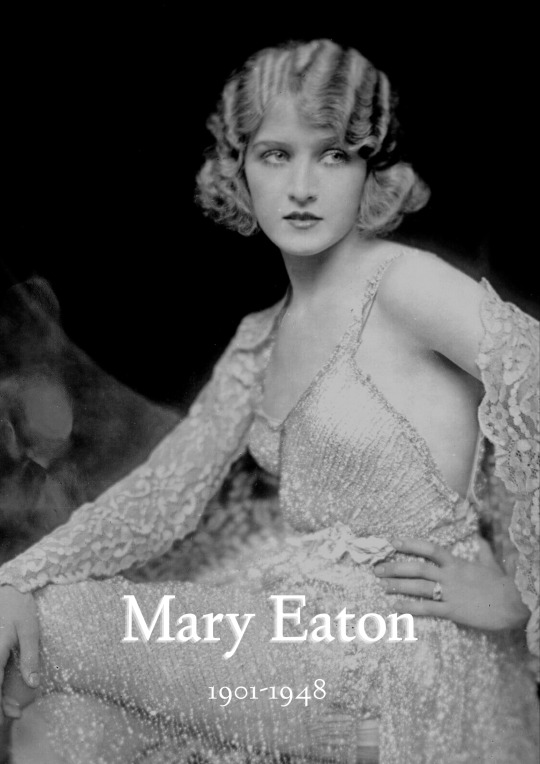
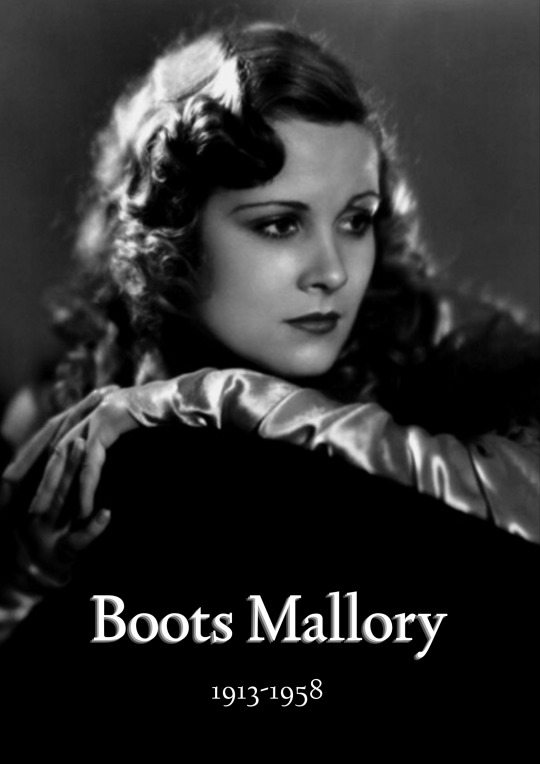
even more beautiful women of the past
#i forgot what part id even be at#history#women in history#catherine moylan#columbia eneutseak#etta moten#chen bo'er#setsuko hara#acquanetta#amalia aquilar#rosalie kunoth-monks#mary eaton#boots mallory#photography#beauty#vintage photography#vintage#graphics
615 notes
·
View notes
Photo










Gold Diggers of 1933 (1933) Mervyn LeRoy & Busby Berkeley
September 12th 1933
#gold diggers of 1933#1933#mervyn leroy#busby berkeley#joan blondell#aline macmahon#ruby keeler#dick powell#warren william#guy kibbee#ned sparks#ginger rogers#etta moten#golddiggers of 1933#high life#pre-code#favourite
20 notes
·
View notes
Text

@tcmparty live tweet schedule for the week beginning Monday, December 13, 2021. Look for us on Twitter…watch and tweet along…remember to add #TCMParty to your tweets so everyone can find them :) All times are Eastern.
Saturday, December 18 at 8:00 p.m. GOLD DIGGERS OF 1933 (1933) Three chorus girls fight to keep their show going and find rich husbands.
#schedule#mervyn leroy#joan blondell#ginger rogers#ruby keeler#aline mcmahon#dick powell#warren william#guy kibbee#ned sparks#clarence nordstrom#sterling holloway#classic film#tammany young#ferdinand gottschalk#theresa harris#billy barty#charles lane#busby berkeley#etta moten#louise beavers#lilyan tashman#william bakewell
21 notes
·
View notes
Video
youtube
Gold Diggers of 1933 (1933) ~ Joan Blondell & Etta Moten ~ Remember My Forgotten Man
#Gold Diggers of 1934#Remember My Forgotten Man#Joan Blonedell#1933#Etta Moten#classic movie stars#classic movies#classic musical numbers#classic musicals#classic Hollywood#pre-code Hollywood#pre-code musicals#pre-codes#musicals#vintage style#vintage women#vintage men#1930's#1930s#30's#30s#vintage Veteran's Day#Veteran's Day#thank you
4 notes
·
View notes
Photo

“Born in Weimar, Texas in 1901 to a minister father and schoolteacher mother, [Etta Moten] Barnett began singing as a child and by her teens was already a performer. Her college-educated parents encouraged her to get a degree, but any chance of that or a performance career seemed to be cut short when she married a World War I veteran at age 17 and had three daughters. Yet, after six years of marriage, Barnett made her first bold, life-redefining move: she divorced her husband and enrolled at the University of Kansas to study voice, drama, and education, relying on her parents to help her raise her children. She was one of about 150 African Americans in a school of almost 6,000 students.
“...Audiences heard [Barnett] before they saw her. Her rich contralto voice graced both a Barbara Stanwyck and a Ginger Rogers film in 1933, leading to an onscreen role in ‘Gold Diggers of 1933.’ In that movie, Barnett appears in the window of a building, lamenting the death of a husband killed in World War I. Her uncredited performance of ‘My Forgotten Man’ was groundbreaking: rarely, if ever, had a black woman appeared on the silver screen as a graceful beauty instead of a comic stereotype, such as a nanny or maid.
“Barnett’s singing so moved either Franklin Delano Roosevelt or his wife Eleanor that Barnett was invited to the White House to sing ‘My Forgotten Man’ and other songs for FDR’s birthday in 1934, making her the first black woman to perform at the White House. That same year she also made her first credited film appearance, as a Brazilian singer in ‘Flying Down to Rio,’ which also marked the debut of Fred Astaire and Ginger Rogers as a team. Barnett’s song ‘The Carioca’ was nominated for an Academy Award. When ‘Flying Down to Rio’ played in African American neighborhoods, Barnett, not Rogers or Astaire, received top billing.
“At the height of her fame, Barnett met George Gershwin. He was working on an opera called ‘Porgy and Bess’ and thought Barnett would be perfect for the lead role. ‘He told me I was Bess, that I had the verve and the looks he wanted,’ she recalled decades later. But the part was written for a soprano, so someone else premiered the role instead. In 1942, however, Barnett decided to take the part in a Broadway revival. It brought her even more acclaim, but the strain of singing outside her vocal type may have ended her singing career. She gave her last formal recital in 1952, having performed with the likes of Duke Ellington in the meantime.
“And thus began another act of Barnett’s life. She made the first of many trips to Africa in 1947 as an unofficial ambassador, attending the independence ceremonies of several countries over the years, including as party to Vice President Richard Nixon in Ghana. [Etta and husband Claude Barnett] brought back both artifacts and knowledge to their fellow Americans, collecting pieces of art to furnish their home and offering lectures on Africa. Their three-story Victorian greystone on the South Side filled up with sculptures, rugs, walking sticks, cloths, and other African artifacts.
“Claude Barnett died in 1967, but Etta continued to be a warm and vital presence in Chicago as she expanded her activities. She served on the boards of the DuSable Museum, Lyric Opera, Field Museum, South Side Community Arts Center, University of Chicago, WTTW, and other cultural institutions. She was a trustee of the National Council of Christians and Jews as well as the African American Institute in New York. She maintained a busy social calendar – her friends included everyone from Harry Belafonte to Studs Terkel – and she didn’t give up wearing high heels until she was 95.
“At her 100th birthday celebration, Belafonte outlined her legacy. ‘She gave black people an opportunity to look at themselves on a big screen as something beautiful when all that was there before spoke to our degradation,’ he said. ‘In her, we found another dimension to being black in our time. She was a true shining star.’” (Daniel Hautzinger, “The Many Pioneering Lives of Etta Moten Barnett,” 2019)
Singer and actress Etta Moten Barnett (1901-2004); photographed c. 1940s.
#happy birthday#etta moten barnett#etta moten#old hollywood#women in history#women in hollywood#women in film#african american women in film#african american women in history#black history#black women in music#black women in film#photography#1940s#40s
4 notes
·
View notes
Photo

The great Etta Moten, most familiar to classic movie fans singing "My Forgotten Man" at the end of "Gold Diggers of 1933". She also created the role of Bess in "Porgy and Bess" (1935).
5 notes
·
View notes
Photo










Joan Blondell performs “Remember My Forgotten Man” in Gold Diggers of 1933 (1933)
Joan [Blondell] was not the most musical of stars. Her dancing was passable, but she was wanting vocally. Her singing voice was, in fact, everything her speaking voice was not – flat, limited in range, and uninteresting. Berkeley was not deterred. “It was a spectacle type of number and a good one to use in those dark days of the Depression when many people had forgotten about the guys who had gone to war for our country,” he said. “I did something extraordinary in that number, too, when I had Joan Blondell sing the song because Joan Blondell can’t sing. But I knew she could act it. I knew she could ‘talk it’ and put over the drama for me.”
Joan is galvanizing in “Remember My Forgotten Man.” In her few moments with the song she is sultry, vulnerable, bitter, and yearning. She is then followed by the magnificent Etta Moten, who provides the song a vocal melody. Later still, the soldiers, then bums, make for a powerful musicalization of politics and history. “Remember My Forgotten Man” is perhaps the most socially urgent song ever conceived for an American musical film. ~Matthew Kennedy, “Joan Blondell: A Life Between Takes”
#gold diggers of 1933#joan blondell#filmedit#oldhollywoodedit#classicfilmedit#1933#mervyn leroy#busby berkeley#mygifs#hands down the most emotional musical number to exist in the entirety of cinema history#and joan's performance of this song (as well as etta moten's!) is breathtaking and heartbreaking#and even though it's so depression-era specific this song still has unbelievable relevancy today?? it transcends its time#honestly just look around. look at the veterans of today#it's so freaking sad#also!! the fact that they ended the movie on this note. the fact that they made a number like this at all!! damn that would've taken guts#and it's so jarring too. the whole movie is fun and light (while still poking at the bear aka the depression and its impact on people)#but then you get this whole spectacle and its so serious and real and basically a call to awareness and it's just#brilliant#u g h favourite of all time
453 notes
·
View notes
Photo

Etta Moten Barnett
3 notes
·
View notes
Text
for the last day of black history month, let’s celebrate etta moten barnett: the first black star to perform at the white house. etta was a black actress who not only created new roles in both films and broadway plays for black women, etta was a board member of a service organization for black woman called ‘the links’ and helped international women’s year events in the 1980s.

1 note
·
View note
Text
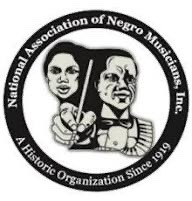
The National Association of Negro Musicians, Inc. is one of the oldest organizations in the US dedicated to the preservation, encouragement, and advocacy of all genres of the music of African-Americans. NANM had its beginning on May 3, 1919, in DC at a temporary initial conference of “Negro” musicians under the leadership of Henry Grant and Nora Holt. Within Members lend their support and influence—educators and professional musicians share their musical knowledge, and amateurs and enthusiasts grow in their musical enjoyment.
NANM has provided encouragement and support to thousands of African American musicians, many of whom have become respected figures and have contributed to American culture and music history. The organization has awarded scholarships to scores of talented young musicians throughout the country, including Marian Anderson, William L. Dawson, Florence Price, Margaret Bonds, Warren George Wilson, James Frazier, Julia Perry, Grace Bumbry, Leon Bates, Joseph Joubert, and Awadagin Pratt.
Many international personalities have been presented in performance, including Lena Horne, Todd Duncan, John W. Work, R. Nathaniel Dett, Marian Anderson, Edward Boatner, Camille Nickerson, Clarence Cameron White, Margaret Bonds, Florence B. Price, Etta Moten, Betty Allen, Natalie Hinderas, Adele Addison, Kermit Moore, Simon Estes, George Shirley, Robert McFerrin, Shirley Verrett, Jessye Norman, Carl Rossini Diton, Sanford Allen, Derek Lee Ragin, the Uptown String Quartet, Esther Hinds, Ruby Hinds, Wilhelmenia Fernandez, the Hinds Sisters, William Warfield, Benjamin Matthews, the Albert McNeil Jubilee Singers, Harolyn Blackwell, Billy Taylor, Delphin and Romain, Greg Hopkins, Martina Arroyo, and Nina Simone.
Clinicians and lecturers of note include Carl Diton, Warner Lawson, Frederick Hall, Kemper Harreld, Wendell Whalum, Eileen Southern, Doris Evans McGinty, Alain Locke, Grace Bumbry, Sylvia Olden Lee, James Cleveland, Raoul Abdul, Matthew Kennedy, Geneva Handy Southall, Sowah Mensah, Willis Patterson, Roland Carter, Brazeal Dennard, Robert Harris, and Shirley Verrett. #africanhistory365 #africanexcellence
0 notes
Video
youtube
Avant Alain Chabat et Gérard Darmon, il y eut aussi Etta Moten Barnett.
Carioca (Flying Down to Rio) - (Thornton Freeland - 1933)
#youpi dansons la Carioca#la carioca#carioca#Flying Down to Rio#fred astaire#ginger rogers#Etta Moten Barnet#1933#video#music
1 note
·
View note

